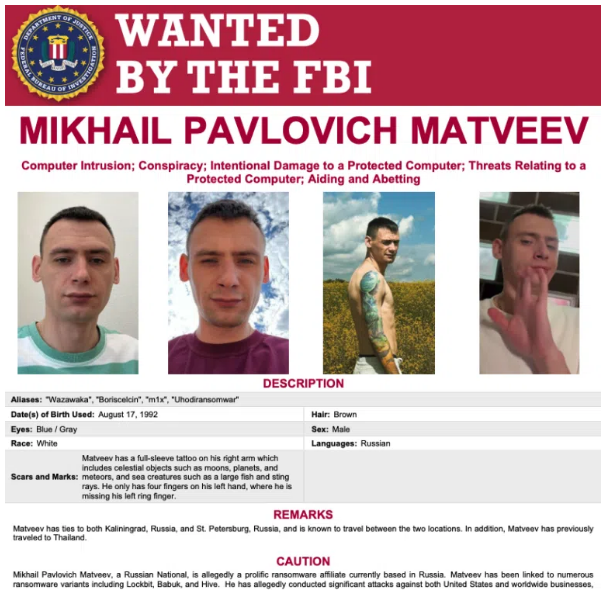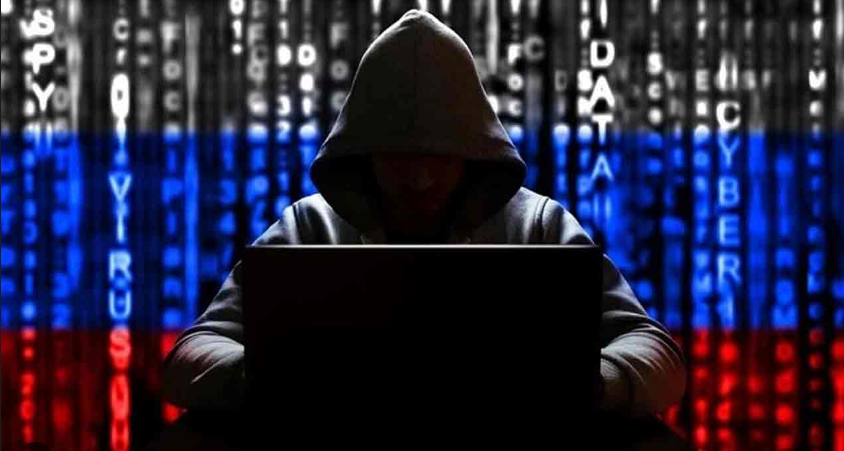In a significant development revealing the ever-looming threat of cybercrime, the US Department of Justice has recently leveled charges against a Russian hacker for his alleged involvement in a nefarious crypto-ransomware conspiracy targeting critical US infrastructure.
The gravity of the situation was highlighted as the DOJ, in a press release dated May 16, announced the unsealing of two indictments against this individual, shedding light on the intricate web of criminal activities that have the potential to disrupt vital systems and compromise national security.
Mikhail Pavlovich Matveev, who is known by various aliases such as m1x, Wazawaka, Uhodiransomwar, and Boriselcin, was identified as the accused individual after the unsealed charges made his identity public.
A Multi-Faceted Attack
According to a press release from the DOJ, Matveev’s attack was directed against a variety of targets across the US mainland, including law enforcement organizations in New Jersey and Washington, DC, as well as the healthcare industry and a number of other fields worldwide.
Federal officials announced a $10 million reward for information leading to the arrest of Matveev on Tuesday.

According to court documents, federal officials have charged Matveev with conspiring to transmit ransom demands, conspiring to damage protected computers, and intentionally damaging protected computers.
He faces more than 20 years behind bars if found guilty of his crimes.
Russian Hacker Makes Easy $200 Million
Ransomware variations of LockBit, Babuk, and Hive were used in the attack, which dates all the way back to 2020. According to reports, Matveev demanded up to $400 million and seized $200 million.
James E. Dennehy, FBI-Newark special agent in charge, said:
“These malicious actors believe they can operate with impunity – and don’t fear getting caught because they sit in a country where they feel safe and protected. That may be the case now, but the safe harbor may not exist forever.”
In quotes by USAToday and published on Yahoo! News, Dennehy added that when they have an opportunity, they will do “everything in our power to bring Matveev and his ilk to justice.”
The Russian hacker allegedly launched global attacks on hospitals, government organizations, and other targets using several ransomware variants from his base of operations in Russia.
“These international crimes demand a coordinated response. We will not relent in imposing consequences on the most egregious actors in the cybercrime ecosystem,” Assistant Attorney General Kenneth A. Polite, Jr. of the DOJ Criminal Division, said of Matveev.
The US Federal Bureau of Investigation (FBI) has listed Matveev as one of the most wanted cybercriminals. The FBI describes Matveev’s connections to Kaliningrad and St. Petersburg, Russia, and asks people all over the world to be on the lookout for his distinctive physical features, including four fingers on his left hand and a tattoo sleeve on his right arm.
Coordinated Effort Needed To Defend Key Infra
The charges brought against Matveev mark a step forward in the process of holding accountable those who are responsible for disrupting key infrastructure, as law enforcement agencies continue their fight against cyber threats on a global scale.
In 2022, there were 23% fewer ransomware attacks than the year before. It is predicted that there were 236.1 million ransomware assaults worldwide in the first six months of 2022, data by AAG IT shows.
The need for joint effort to defend the digital landscape and susceptible institutions from the potentially devastating impacts of cyberattacks is highlighted by the requirement for international cooperation to combat these crimes.
-Featured image from Telangana Today








